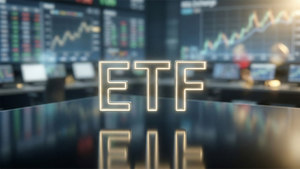Sees Opportunity to Significantly Reduce Leverage Ratio, Achieve ~3x EV / EBITDA Multiple and Nearly Double Pitney Bowes’ Share Price by Divesting the Company’s Money-Losing GEC Business
Believes the Board Must Explore All Paths to Maximizing Shareholder Value, Including by Running a Comprehensive Review of Strategic Alternatives
Underscores the Need for Permanent Leaders Following Unacceptable Turnover in the C-Suite and Boardroom
Lakeview Investment Group & Trading Company, LLC, which beneficially owns approximately 2.55% of the outstanding common shares of Pitney Bowes, Inc. (NYSE: PBI) (“Pitney Bowes” or the “Company”), today issued the below open letter to the Company’s Board of Directors.
***
April 30, 2024
Pitney Bowes, Inc.
Attn: The Board of Directors
3001 Summer Street
Stamford, CT 06926-0700
Members of the Board of Directors,
Lakeview Investment Group & Trading Company, LLC (collectively with its affiliates, “Lakeview,” “we” or “us”) beneficially owns approximately 2.55% of the outstanding common shares of Pitney Bowes, Inc. (NYSE: PBI) (“Pitney Bowes” or the “Company”). Lakeview has a record of engaging with boards of directors and management teams to help them improve governance and initiate value-enhancing actions. We want to maintain a similarly productive relationship with Pitney Bowes.
We recognize the Board’s efforts to help reduce the Company’s cost structure and streamline the organization since last year’s Annual Meeting. We simply believe there is more work to be done to unlock value for shareholders, which leads us to why we are writing to you today:
-
The Board needs to initiate an immediate sale of the Global Ecommerce (“GEC”) unit. When long-time CEO Marc Lautenbach was replaced in October 2023, we – like many shareholders – expected that a sale of the problematic GEC segment would swiftly follow. However, the Company has provided no concrete update to shareholders regarding changes in the GEC unit, including a potential sale, beyond noting that management is reviewing its options.1 Eliminating the GEC segment – even if it requires selling the business for zero or less in the event there are some longer-tailed liabilities that cannot be removed – would be “addition by subtraction” given how much money the GEC business has lost over time. The Board is well aware this segment has cost shareholders more than $100 million per year for the last several years with seemingly no end in sight.
- Pitney Bowes needs permanent leaders following unacceptable churn in the executive ranks. During the past 12 months, the Company has experienced a significant amount of turnover in both the boardroom and C-suite. Pitney Bowes now has two senior interim executives, interim CEO Jason Dies and interim CFO John Witek, and an outgoing Board Chair. While we are supportive of the Board’s anticipated appointment of Jill Sutton as Chair following the 2024 Annual Meeting, this level of churn is unacceptable and indicates a lack of stability within the organization. Shareholders need permanent leaders at the top to ensure that Pitney Bowes’ strategy and execution remain in focus.
How a Sale of the GEC Unit Could Generate Significant Shareholder Value
By continuing its pursuit of unprofitable volume and nonexistent scale within GEC, Pitney Bowes continues to burn cash. No matter how you slice it, the best scenario for shareholders is for the GEC segment to be sold. We believe this view is shared across the investor base, as evidenced by the fact that we are not the first shareholder to publicly call for a divestiture of GEC. According to our analysis, a sale would significantly increase net income, deleverage the balance sheet and unlock shareholder value.
The GEC segment continues to earn a small fraction of its competitors’ margins, meaning a buyer that can apply its superior cost structure to the business will eventually be able to extract value from a segment that has so far delivered nothing but losses. We believe there are strategic buyers that would be interested in acquiring all or part of the GEC business, given its volume and package characteristics.
The disposition of GEC should also allow for right-sizing the corporate balance sheet over time. Notably, although the Company’s total debt appears to be ~$2 billion, this includes ~$1 billion of implied financing related debt that should be excluded from the net debt calculation.2 The business will be less indebted overall (<1.5x Net Debt / EBITDA) once the negative GEC EBITDA is removed, so any future financing should be from a position of improved creditworthiness, which should result in more favorable interest rates and covenants, such as the removal of the current restriction on share repurchases. Additionally, the increased cash flow can be used for some combination of debt paydown, and – to the extent the share price remains depressed – share repurchases. Longer term, we believe the Board should evaluate all strategic alternatives to maximize shareholder value, including a sale of the entire Company.
Stripping out GEC with the assumption that costs and proceeds from selling the unit could potentially deliver zero, we still expect the resulting corporate entity to trade at 3x EV / EBITDA:
| PBI Market Capitalization | $754 |
||||
| PBI Net Debt | 500 |
||||
| PBI Enterprise Value | 1,254 |
||||
| Trailing 12 Months EBITDA by Segment | |||||
| GEC | (67) |
||||
| SendTech | 435 |
||||
| PreSort | 145 |
||||
| Unallocated Depreciation & Amortization | 30 |
||||
| Corporate Overhead | 211 |
||||
| EBITDA | EV / EBITDA | ||||
| Post-GEC (No overhead reductions) | 399 |
3.1x | |||
| Post-GEC ($50 million of overhead reductions) | 449 |
2.8x | |||
Data from SEC filings, earnings presentations and Company management ($ in millions). |
|||||
Even absent significant reductions in corporate overhead, we are hopeful that the shares could re-rate materially. If, for example, post-GEC disposition, the shares trade at an undemanding 5x EV / EBITDA (assuming no overhead reductions), this would result in a share price north of $8 – almost double current levels.
Shareholders would clearly benefit from a timely divestiture of GEC, rather than wasting additional resources pursuing elusive growth within the segment. Our singular goal is to help Pitney Bowes realize the full potential of its underlying value. We urge you to consider the immense value creation opportunity at hand and would welcome the opportunity to share additional details regarding our recommendations at your convenience.
Sincerely,
Ari Levy
|
Tim Won
|
***
About Lakeview Investment Group
Lakeview Investment Group & Trading Company, LLC is a Chicago-based investment manager founded in 2004 with a focus on small- and mid-cap companies. Lakeview’s strategy focuses primarily on long-term investments in companies trading at significant discounts to intrinsic value. On select occasions, Lakeview engages directly with company leadership to help drive shareholder value.
1 The latest update regarding the GEC segment was during the Company’s Q4 2023 earnings call (February 1, 2024).
2 These figures were included in the Company’s Q4 2023 earnings presentation.
View source version on businesswire.com: https://www.businesswire.com/news/home/20240430575135/en/
Contacts
Lakeview
Ari Levy / Tim Won, (312) 245-2910
ari@lakeviewig.com / twon@lakeviewig.com





